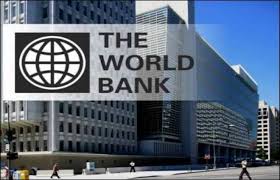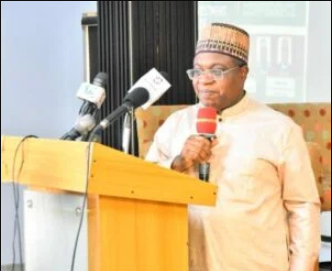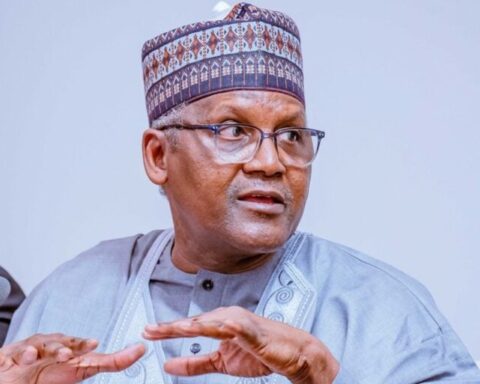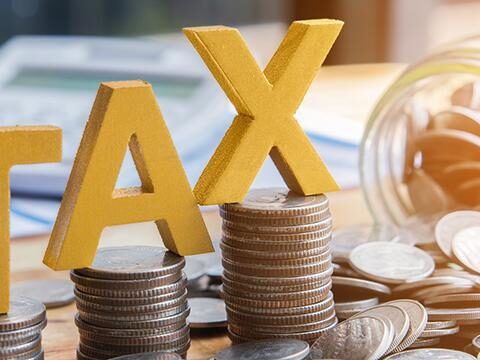Global financial organisations, particularly the International Monetary Fund (IMF) and World Bank (WB), have been kind to the government of President Bola Tinubu. They’ve so far seized virtually every chance to praise the reforms he instituted very early into his administration, notably oil subsidy removal and the floating of the naira.
The former was announced in the course of his inauguration speech at Eagle Square, Abuja over two years ago. Perhaps, there was no better way to display his audacity. And he probably knew that majority of his compatriots had already become despondent or simply succumbed to the weight of years of mediocre governance; but he certainly didn’t intend to leave anyone in doubt about his readiness to right the wrongs either midwifed or superintended over by his predecessors.
With the tacit endorsements by those Bretton Woods institutions came apprehension and outright disapproval from many Nigerians. History has taught them that whenever these financiers step out to assist countries supposedly to boost their economies, the end results often fall short of pledges and expectations. No doubt, their romance with the federal government has been largely viewed with scepticism, especially outside the power corridors. Last week’s unusual intervention by the WB is in some ways surprising. Its Country Director for Nigeria, Matthew Verghis, while presenting the bank’s report titled, “From Policy to People: Bringing the Reforms Gains Home”, veered onto a less travelled path.
First, the familiar eulogies. “Over the last two years, Nigeria has implemented major reforms around the exchange rate and petrol subsidy. These policies have laid the foundation for transforming the country’s economic trajectory for decades to come…. Growth has picked up, revenues have risen, debt indicators are improving, the forex market is stabilising, reserves are rising, and inflation is finally beginning to come down. These are major achievements, and many countries would envy them”, Verghis declared like someone on a mission to make the members of Tinubu’s Renewed Hope corps happy. He sounded very much like the paraphrase of a portion of the last presidential Independence Day broadcast. However, just when the government’s minders thought that he would simply go ahead to corroborate the president’s assertion that “we have finally turned the corner”, his tone changed.
He delved into the not so familiar. His words: “Despite these stabilisation gains, many Nigerians are still struggling. In 2025, we estimate that 139 million Nigerians live in poverty. The challenge is clear: how to translate reform gains into better living standards for all…. Food inflation affects everyone but hits the poor the hardest. It also threatens to undermine political support for reforms. Tight monetary policy is essential, but it must be complemented by structural measures that tackle supply and market bottlenecks…. These are not abstract ideas – they are practical steps that can turn macro-stability into improved livelihoods.” No striking, ingenious statement, actually. It’s a viewpoint supported by both scientific data and street-feeling; something echoed at numerous fora by experts and others alike. Even many of those who swear that Tinubu means well would agree that the gap between the policies being administered to the traumatised citizenry and their promised fruitions keeps expanding. The sooner the government agrees with the fact that this opinion isn’t the handiwork of its enemies, the more energies it can truly muster and invest in workable and fruitful approaches.
But it’s not comfortable with this constructive admonition coming from a friendly body, unfortunately. The immediate response of Sunday Dare, Tinubu’s Special Adviser on Media and Public Communication, validates this fear: “While Nigeria values its partnership with the World Bank and appreciates its contributions to policy analysis, the figure quoted must be properly contextualised. It is unrealistic…. There must be caution against interpreting the World Bank’s numbers as a literal, real-time headcount. The estimate is derived from the global poverty line of $2.15 per person per day, a benchmark set in 2017 Purchasing Power Parity terms….
“The measure is an analytical construct, not a direct reflection of local income realities. Poverty assessment under PPP methodology uses historical consumption data (Nigeria’s last major survey was in 2018/19) and often overlooks the informal and subsistence economies that sustain millions of households. The government, therefore, regards the figure as a modelled global estimate, not an empirical representation of conditions in 2025. What truly matters is the trajectory, and Nigeria’s is now one of recovery and inclusive reform…. Nigeria rejects exaggerated statistical interpretations detached from local realities.”
Nothing unexpected about that reaction, really, considering Dare’s job description. But the Nigerian people do not even need any agency to tell them the scope of their own predicaments. Like the ones before it, this administration has been making efforts to steer the nation’s economy through periods of underperformance and turbulence. Only that it is heavier on promises, more promises, and assurances than concrete deliverables. Again, we don’t have to depend on statistical charts, tables and diagrams to prove that the number of the beneficiaries of government’s programmes does not come anywhere close to those who haven’t accessed them. Officials can propagate their real and perceived strides without denying Nigeria’s clear downward variables like rising joblessness, grossly disabled purchasing capacity, severely challenged manufacturing sector, acutely weakened social infrastructure and more.
So, Verghis’ submission shouldn’t be waved aside. Establishments like IMF and WB do claim to fight poverty. It is however not lost on industry watchers that they’re more interested in maintaining the status quo, in the long run. It’s difficult to identify the nations they’ve helped to migrate from the underdeveloped or developing category to the elite, developed one. In fact, nations that have been undiscerning enough to wholly take their loans and economic prescriptions are known to have descended to lower grades of development. WB’s Nigeria’s GDP prediction of 4.2 to 4.4 percent growth between now and 2027 isn’t anything to dance about. For the country’s status as host to the world’s largest number of multidimensionally poor people to change significantly, that figure should be in double digits.
Tinubu and his team must go beyond the ongoing superficial packaging believed to be for the next election. There’s work to prosecute. News headlines like “Nigeria’s Public Debt Hits N149 trillion Amid Rising Domestic Borrowing” and “Nigeria’s Public Debt Hits N152 trillion in Q2 2025 – DMO Raises Alarm” alone can rubbish any talk of enhanced revenue generation. Today, penury is a lived reality in many homes, not a shadowy phenomenon. One key action towards tackling it is embracing Verghis’ advice in good faith.
Follow us on all social media platforms @dailyquery for news and analyses around the globe.



























